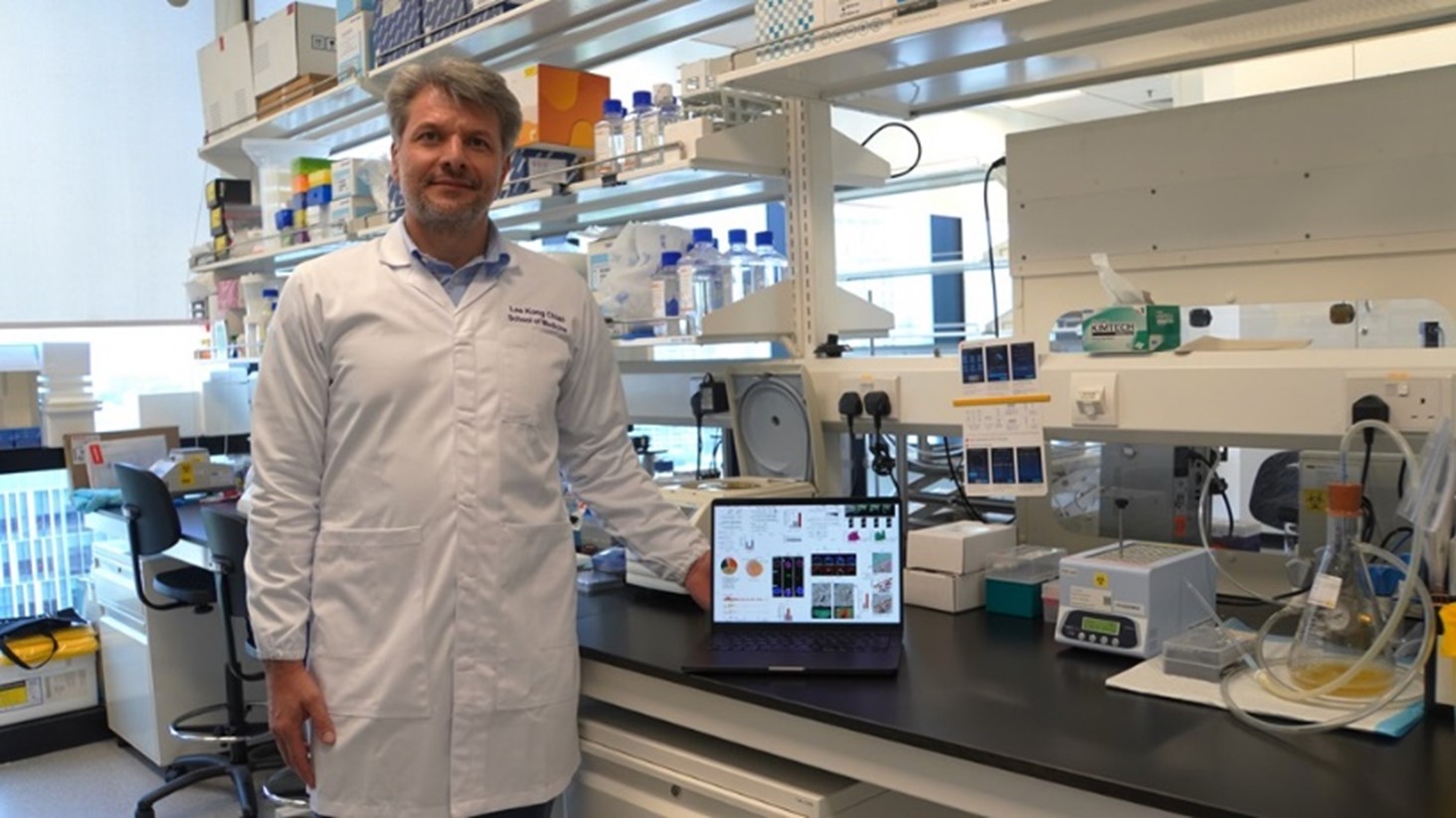Research: LKCMedicine-led Study Discovers New Process for Cells to Repair DNA Damage
 | By Sanjay Devaraja, Editor, LKCMedicine's Redefine Newsletter |
A team of researchers from LKCMedicine and the University of Oxford has uncovered a novel process for repairing damaged DNA, which is especially relevant for patients undergoing colorectal cancer treatments. In their report published in Cell, the researchers describe a new DNA repair mechanism where cells eliminate harmful DNA-protein lesions from the nucleus, ensuring genetic stability and promoting cell survival. This newly identified process is called nucleophagy.
Nucleophagy is a natural cellular cleaning process, similar to autophagy, which plays a crucial role in repairing DNA and supporting cell survival. It involves a widely expressed protein called Tex264. When a patient undergoes chemotherapy for colorectal cancer, the treatment induces DNA lesions. In response, the body produces TEX264, triggering nucleophagy, which directs the lesions to the cell's waste disposal system, where they are broken down and eliminated.
The research team employed advanced techniques, including biochemical analysis, cell biology, bioinformatics tools, a zebrafish model, and colorectal cancer patient samples, to validate the importance of nucleophagy in DNA repair.
This discovery reveals a new pathway for DNA damage repair, offering potential improvements for cancer treatments and the prospect of better patient outcomes in the future, according to the team of scientists and clinicians involved in the study.

Lead investigator Kristijan Ramadan, the Toh Kian Chui Distinguished Professor in Cancer and Stem Cell Biology, and Director of Cancer Discovery and Regenerative Medicine Programme at LKCMedicine said, “While autophagy is known to be associated with DNA repair, there has been no evidence of its direct role in the repair of DNA lesions until now.”
“Our discovery that nucleophagy plays a direct role in DNA repair of chemotherapy-induced lesions is the result of a five-year joint effort among several laboratories in the UK, Singapore, USA, Portugal and Croatia,” added Prof Ramadan, who is also Medical Research Council Investigator at the Department of Oncology, Oxford.
Patients with elevated levels of TEX264 experience improved responses to cancer treatment. This finding is particularly relevant for those with colorectal cancer, which is the second leading cause of cancer-related deaths globally, according to the World Health Organization.
An analysis of colorectal cancer patients receiving Topoisomerase 1 inhibitors, such as Folfiri therapy (a commonly used chemotherapy for colorectal cancer), revealed that those with higher levels of TEX264 in their tumours had a 50% better treatment response compared to those with lower levels.
In future research, the team plans to investigate the role of nucleophagy in the body’s reaction to chemotherapeutic drugs in other cancers, to further validate their discovery. Their ultimate aim is to use this finding to enhance chemotherapy responses for cancer patients.

